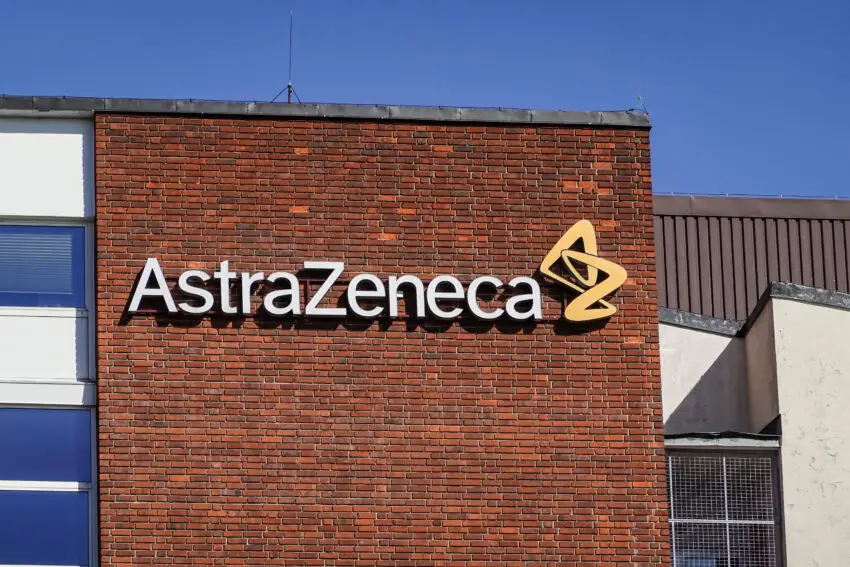AstraZeneca’s ambitious plans to establish a £450 million vaccine production plant are facing uncertainty. This comes as the UK government reevaluates its financial support for the project.
The reconsideration involves reducing the promised funding from £65 million to £40 million, raising concerns about the project’s future and its broader implications for the life sciences sector.
Government Financial Support Under Scrutiny
The UK government is reassessing its financial commitment to a £450 million vaccine production facility, potentially reducing the allocated funds from the previously promised £65 million to £40 million. This significant cutback has raised concerns over the future of the expansive project, which is part of a larger £200 million initiative to bolster research and development capabilities.
The investment was initially emphasised by the former chancellor, who praised the company as a cornerstone of the nation’s life science sector. Despite assurances from the current Treasury about ongoing discussions, the uncertainty surrounding the funding has created a cautious atmosphere around the project’s continuity.
Local Political Support and Advocacy
Maria Eagle, the local MP representing Liverpool Garston, where the facility is located, has indicated her determination to secure the necessary funding. She plans to engage with the government’s Office for Life Sciences to push for the investment, stressing its importance to the local economy and job market.
This advocacy comes amidst a broader review of spending decisions by the new chancellor, following recent political shifts. Political backing could prove crucial in tipping the scales towards favourable financial outcomes for the project.
AstraZeneca’s Strategic Importance
AstraZeneca, known for its substantial contributions to the COVID-19 vaccine effort, remains optimistic about their plans. The company, currently valued at over £200 billion, has indicated readiness to proceed with the development of the facility once financial details are finalised.
CEO Sir Pascal Soriot has previously highlighted his confidence in the UK’s life sciences capabilities but has also voiced concerns regarding the local business environment. This dual stance reflects the company’s significant yet cautious engagement with the UK as a strategic location for its operations.
The company’s intent to expand its reach and capabilities underlines its commitment to innovation, despite the potential financial hurdles posed by government reevaluations.
National and Global Implications
The potential reduction in funding threatens not only local jobs but also the UK’s position as a hub for pharmaceutical innovation. Reducing government support for such a landmark project could have ripple effects throughout the national and global pharmaceutical landscape.
The issue has drawn comments from key figures such as the Shadow Secretary of State for Science, Innovation and Technology. He expressed disappointment, arguing that this move could undermine the UK’s aspirations to become a leader in science and technology.
Any delays or reductions in the project’s scope could impact the UK government’s broader goals of fostering innovation and leading in the life sciences sector.
Treasury’s Position and Ongoing Discussions
The Treasury has reiterated its commitment to transforming the UK into a global nucleus for innovative medicines and technologies. However, the review of prior spending decisions has created a pause in assurance from the government, leading to ongoing discussions with AstraZeneca.
Treasury decisions are critical in shaping the landscape for high-stakes investments in the sector. The interplay between government policy and corporate strategy will be pivotal in determining the outcome of the Speke facility’s funding and development.
Maintaining or increasing the financial support will be essential for seizing growth opportunities and solidifying the UK’s status as a life sciences leader.
CEO’s Confidence and Project Advancements
Despite the financial uncertainties, AstraZeneca’s CEO maintains a positive outlook on the project’s progression. Sir Pascal Soriot recently underscored the company’s readiness to commence operations at the facility, indicating that the groundwork has been laid pending final confirmation of funds.
The facility is poised to play a crucial role in AstraZeneca’s broader strategic goals, provided that the financial backing from the government aligns with the company’s expectations and operational timelines.
The plant’s development is expected to significantly enhance the company’s production capabilities, ensuring that it remains at the forefront of global pharmaceutical advancements.
Concerns from Industry and Political Figures
Industry experts and political figures have voiced their worries regarding the potential financial cutbacks. There is a broad consensus that reducing support could hinder the UK’s competitive edge in the life sciences sector.
A reduction in funding may also send mixed signals to other potential investors, possibly affecting future endeavours aimed at expanding the UK’s pharmaceutical and technological infrastructure.
Maintaining robust financial backing is viewed as essential in safeguarding the industry’s growth and the associated economic benefits.
The future of AstraZeneca’s vaccine plant in Speke remains uncertain as the government reassesses its financial commitment.
Ongoing discussions and political advocacy will be crucial in determining whether this pivotal project proceeds as planned.


